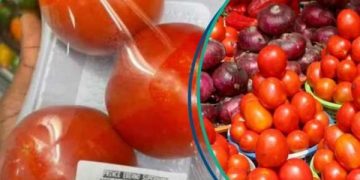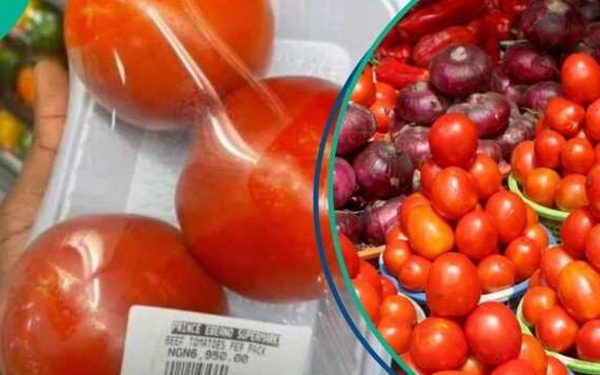Ebeano Supermarket faces backlash over inflated prices amidst tomato and pepper scarcity in Abuja.
In Abuja, Nigeria, the Ebeano Supermarket has found itself at the center of controversy due to soaring prices of tomatoes and peppers, triggering widespread public outcry and scrutiny. Images circulating on social media depict shocking price tags, such as N6,950 (€4.87) for just three tomatoes, highlighting the severity of the scarcity-driven inflation.
The surge in prices is primarily attributed to a severe shortage caused by a disease outbreak infamously known as Tomato Ebola. This agricultural epidemic has devastated tomato farms across Northern Nigeria, leading to a drastic reduction in the supply of tomatoes and spices. The situation has become so dire that a state in Northern Nigeria has declared a state of emergency to combat the pestilence unleashed by destructive moths, which have decimated substantial portions of tomato crops.
As a result of the scarcity and inflated prices, consumers in Nigeria are actively seeking alternative sources for tomatoes and peppers. The shortage has not only impacted household budgets but has also posed challenges to local businesses and food processors reliant on these essential commodities.
The Ebeano Supermarket, attempting to justify the price hike, cites the limited availability of tomatoes and peppers in the market as the primary reason for the exorbitant prices. However, this explanation has not assuaged the frustration felt by consumers and local authorities grappling with the economic implications of the scarcity.
The incident underscores broader issues concerning food security and agricultural resilience in Nigeria, urging stakeholders across the agricultural value chain to explore sustainable solutions to mitigate the impact of such outbreaks on food availability and affordability.































